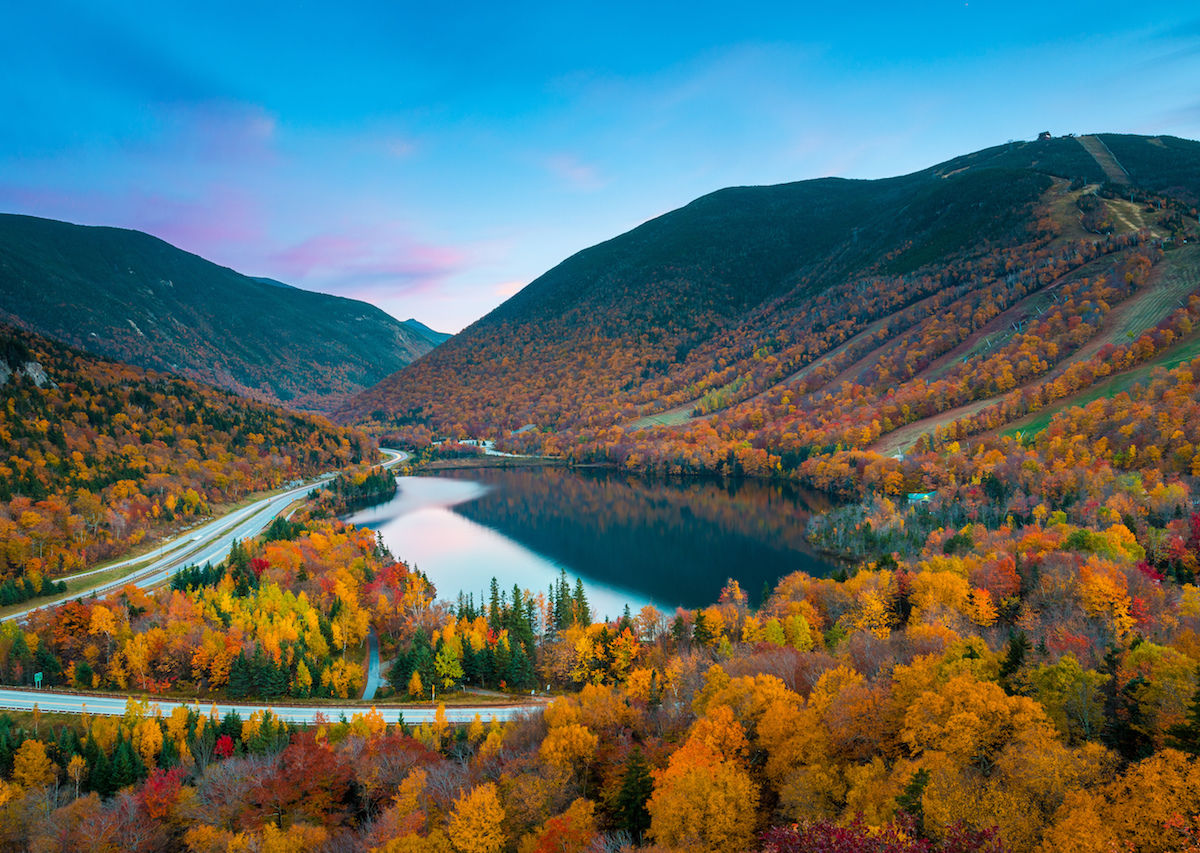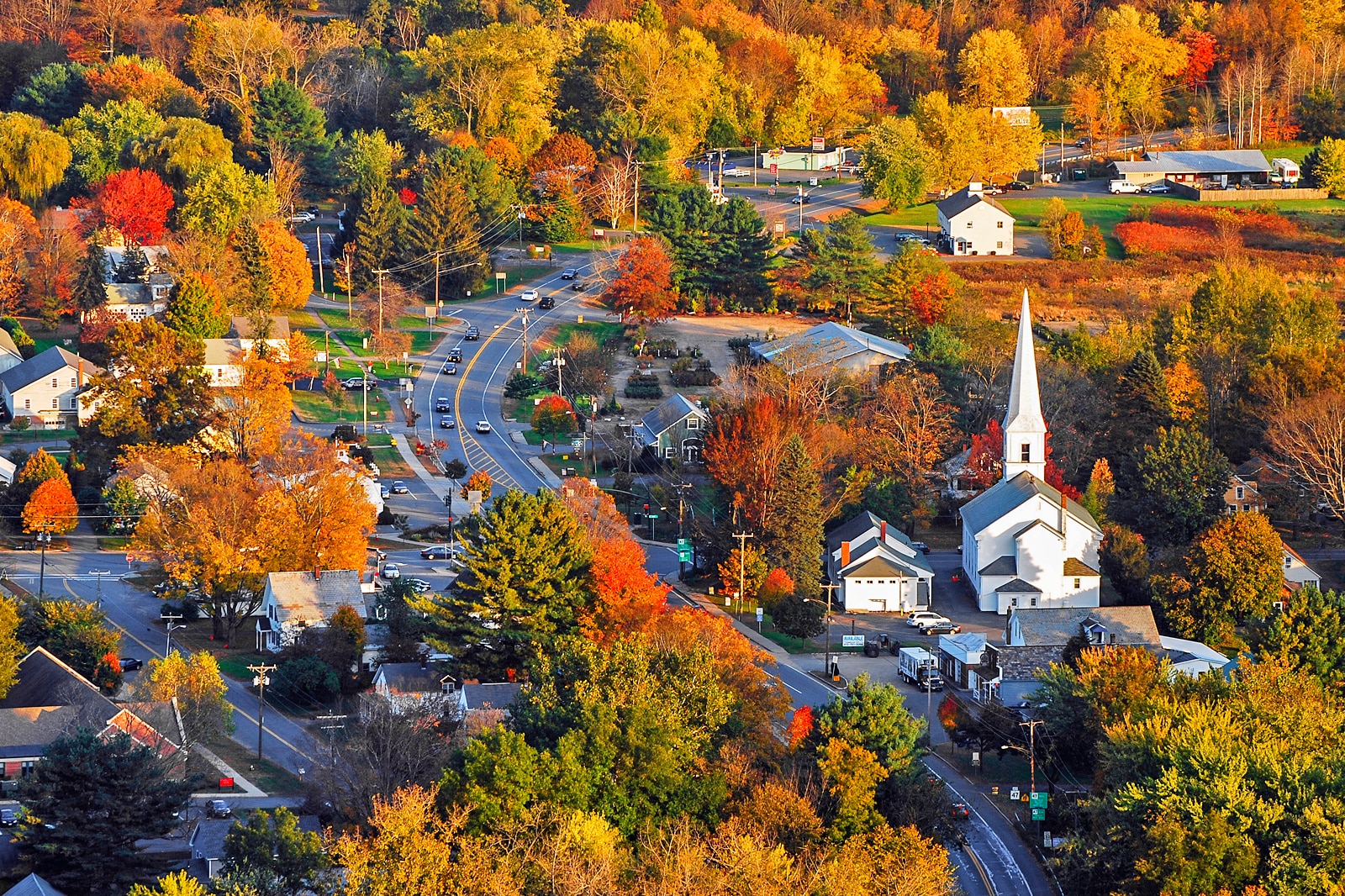
New Hampshire: Where Freedom, Fierce Politics, and Untamed Beauty Converge
In the rugged embrace of New England lies a state that, despite its modest size, casts an outsized shadow across the American landscape. New Hampshire, with its iconic "Live Free or Die" motto, is a paradox wrapped in granite and draped in autumnal splendor. It’s a place where fiercely independent citizens grapple with the nation’s most pressing political questions every four years, where pristine wilderness beckons adventurers, and where a unique economic philosophy shapes daily life. To understand New Hampshire is to grasp a fundamental strain of American identity: self-reliance, a deep connection to nature, and an unyielding commitment to individual liberty.
The very essence of New Hampshire is distilled in its state motto, born from the words of Revolutionary War hero General John Stark. "Live Free or Die" is not merely a slogan; it’s a foundational philosophy that permeates the state’s politics, culture, and economy. This ethos manifests in a deep-seated skepticism of government overreach, a preference for local control, and a commitment to personal responsibility. It’s why New Hampshire stands out with its unique tax structure: no state sales tax and no state income tax on wages (though it does have a 5% tax on interest and dividends, and famously high property taxes). This economic model is a point of immense pride for many residents, seen as a direct embodiment of the "Live Free or Die" principle, allowing individuals to keep more of their earnings and decide how best to spend or invest them.
This libertarian streak, however, exists in fascinating tension with the state’s crucial role in national politics. Every four years, New Hampshire becomes the epicenter of the American political universe as it hosts the "First-in-the-Nation" presidential primary. Unlike the sprawling media campaigns of larger states, New Hampshire’s primary is defined by "retail politics." Candidates forgo massive rallies for intimate town hall meetings, coffee shop conversations, and door-to-door canvassing in snow-dusted towns. Voters here take their responsibility seriously, scrutinizing candidates up close, asking tough questions, and often changing their minds multiple times before casting their ballots.

The primary’s significance cannot be overstated. It offers a crucial early test of a candidate’s viability, their ability to connect with ordinary voters, and their campaign’s organizational strength. Success in New Hampshire can provide invaluable momentum, while a poor showing can spell the end of a presidential bid. The state’s relatively small and engaged electorate acts as a discerning filter, forcing candidates to refine their messages and truly listen to the concerns of the American people, albeit through the lens of a particular New England sensibility. The primary is a quintessential example of democratic participation on a human scale, a tradition fiercely protected by Granite Staters who understand its profound impact on the nation’s future.
Beyond the political stage, New Hampshire is a realm of breathtaking natural beauty that offers a stark contrast to the often-heated debates of the campaign trail. The White Mountains, a subrange of the Appalachians, dominate the northern landscape, home to the majestic Mount Washington. At 6,288 feet, Mount Washington is the highest peak in the Northeastern United States and is famously known for having "the world’s worst weather." Its summit has recorded some of the highest wind speeds on Earth, creating an environment that challenges even the most experienced mountaineers. Yet, it’s also a destination for thousands, accessible via the historic Cog Railway or the scenic Mount Washington Auto Road, offering panoramic views that stretch for miles on clear days.
The White Mountains are a playground for outdoor enthusiasts year-round. Summers bring hikers to the extensive network of trails, including sections of the Appalachian Trail, while winter transforms the region into a skier’s paradise with renowned resorts like Cannon Mountain, Loon Mountain, and Bretton Woods. But the mountains are just one facet of New Hampshire’s natural allure. The state is dotted with over 250 lakes and ponds, with Lake Winnipesaukee standing as the largest and most iconic. Its sparkling waters and countless islands draw vacationers for boating, swimming, and fishing, embodying a quintessential New England summer experience.
Even New Hampshire’s relatively short coastline, a mere 18 miles, holds its own charm. The historic city of Portsmouth, with its vibrant downtown, colonial architecture, and bustling port, offers a taste of maritime New England. Further south, the sandy beaches of Hampton and Rye provide classic seaside enjoyment, while the Isles of Shoals, a cluster of islands off the coast, whisper tales of pirates and poets.
The changing seasons paint New Hampshire in a kaleidoscope of colors, none more spectacular than autumn. The state is world-renowned for its fall foliage, as maples, oaks, and birches explode in vibrant reds, oranges, and yellows. Leaf peepers flock from around the globe to witness this natural spectacle, driving scenic byways, visiting apple orchards, and enjoying the crisp, invigorating air. Winter transforms the landscape into a serene, snow-covered wonderland, while spring breathes new life into the forests and rivers, signaling the cycle of renewal.
New Hampshire’s history is as rich and varied as its landscapes. It was one of the original thirteen colonies, playing a pivotal role in the American Revolution. The state proudly boasts that it was the first to declare its independence from Great Britain in January 1776, six months before the national declaration. Its rivers, particularly the Merrimack, powered the industrial revolution in the 19th century, transforming towns like Nashua and Manchester into bustling mill cities, drawing waves of immigrants who contributed to the state’s diverse cultural fabric. Traces of this industrial past, from repurposed mill buildings to historic canals, are still visible today, blending seamlessly with the state’s colonial heritage.
Culturally, New Hampshire values community and a strong sense of place. Small towns often serve as the heart of local life, where town meetings are not just a formality but a lively forum for direct democracy. There’s a pragmatic, no-nonsense attitude prevalent among Granite Staters, a self-reliance that extends to their interactions and problem-solving. While often perceived as politically conservative, the "Live Free or Die" ethos also attracts a significant libertarian population, creating a unique blend of political thought that is less about rigid ideology and more about individual choice and limited government.
However, New Hampshire is not without its challenges. Like many New England states, it faces an aging population and the associated demographic shifts. Attracting and retaining young talent, addressing housing affordability, and managing the impacts of climate change on its natural resources are ongoing concerns. The balance between preserving its cherished rural character and accommodating necessary growth is a constant negotiation.

Yet, New Hampshire endures as a beacon of independence and natural beauty. It’s a state that demands engagement, whether you’re navigating its political primaries, conquering its mountain peaks, or simply enjoying the quiet solitude of its forests. It reminds us that freedom is not a given but a principle to be actively lived, debated, and defended. More than just a geographical location, New Hampshire is a state of mind, a testament to the enduring American spirit that values liberty above all else, intertwined with a profound respect for the untamed majesty of the natural world. In its granite hills and spirited debates, New Hampshire offers a timeless lesson in what it truly means to "Live Free or Die."


